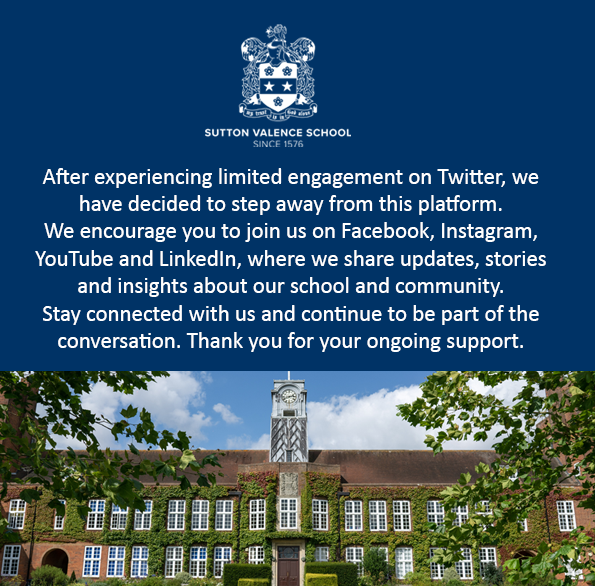A very happy Easter to you all, and I hope that you have managed to at least do something enjoyable with those nearest and dearest to you over the weekend.
Up until Sunday, the Christian Church is somewhat sombre, as the focus is on Jesus’ crucifixion. However, all that changes on Easter Sunday, when the resurrection takes place. Why is this so important and why is it so celebrated? Because in Jesus rising from death we are shown that there is no death.
However, you understand the resurrection, a literal historical event or a figurative story that demonstrates a deep, fundamental human truth; there is life after death. It is a powerful and much-needed message, particularly at a time such as we face now, where people are losing their lives.
The knowledge that there is life after death is a real comfort when facing our own mortality. Sometimes the focus on death in religion has been seen by those of no faith as morbid.
In our culture, we don’t even talk about it. We pretend it doesn’t exist and avoid any serious reference to it. The trouble is it then comes as an enormous shock when it is forced upon us, as it is now. All of the major faiths promise that life does not end with physical death, they may understand how that happens differently, but they are consistent in that it carries on somehow. Now, if you are cynical you can dismiss that, and many secularists do, rigidly sticking to a frankly outdated materialistic belief paradigm, and it is just a belief like any other. The trouble with that is that I am convinced that what lies behind much of the current mental health crises that we witness in our society is a repressed fear of death manifesting itself as various other conditions; it can either be our own death we fear or the death of those we love. If you could be shown that life carries on, and you could believe that, how much of a comfort would that be? And that is the message of the resurrection. Of course, it does not remove, grief, that is the cost of love, the flip side. The only way to get rid of grief is to get rid of love. Grief becomes something that we can deal with when we understand that.
I would argue that current science is showing evidence for the continuation of consciousness after clinical death, which is measured by the stopping of the heart and all brain activity. Professors Roger Penrose of Cambridge University and Stuart Hameroff of Chicago University have studied the nature of consciousness and concluded that it is not a product of the brain but exists outside it and the brain tunes in, much like a radio receiver. That is a very simplistic explanation but I would recommend you look them up if you are interested. Even more convincing, in my view, is the phenomenon of Near-Death Experience. This is now being taken seriously by many in the medical profession and is being studied properly under medical supervision. Millions of people all over the world, of all cultures and religions, have these lucid experiences whilst clinically dead. It used to be thought that they were simply hallucinations in a dying brain, giving some kind of comfort, a kind of wishful thinking. However, there are too many recorded cases of people who are clinically dead being able to recount accurately exactly what was happening to them at the hospital, from the people involved to conversations that are taking place, so the experience incorporates both this reality as well as a spiritual realm.
This phenomenon could even throw a whole new light on what possibly happened to Jesus. Some Biblical scholars have made the link, including Dr Gary Habermas who is an American New Testament scholar with a focus on the resurrection. He has studied the NDE phenomenon for over 30 years and believes that this explains the resurrection. I realise that this might be contentious ground for some Christians, but in my view, we have to be open-minded. I am convinced that the resurrection is more than a figurative story or a metaphor of some sort.
Something astonishing happened that convinced the early Christian community that death was not the end, starting with the Apostles themselves who, after the crucifixion, were terrified and in hiding, fearing for their own lives. What changed that? Something real, something seismic happened. I believe in the truth of the resurrection, that Jesus in some sense genuinely came back from the dead. I am personally open-minded about the possibility that Near Death Experience might throw some light on that. The accounts of NDE studied by doctors, such as heart surgeons Sam Parnia and Pim Van Lommel, are impressive in their consistency and uniformity, as well as the fact that these people should not be able to have any kind of experience involving the brain at the time that they are having them. For me, the evidence is convincing and demonstrates, at least as far as is possible under current scientific conditions, that consciousness carries on. It cannot prove that in a deductive way at the moment, as science is not currently equipped to do so, but I do believe that on a balance of probabilities, the evidence is that life after death is not only possible but probable.
Now, you can be cynical about this and just write it off, but I would argue that those secularists that do that are suffering from cognitive dissonance, a refusal to accept any evidence that goes against their current belief paradigm because it is uncomfortable.
This is something that many secularists accuse religious people of doing, but that is only true of fundamentalists, which is a label that could also be applied to many atheists. For me, you must do as Einstein said, and follow the evidence wherever it leads. There is a big difference between healthy scepticism and cynicism, the latter is a form of intellectual insecurity in my view, a fear of being seen to be wrong, and we must all be open to that possibility if any progress is to be made.
It is the scientists who can think outside the box and are open to new possibilities that make the discoveries.
So what of the crucifixion and resurrection? The crucifixion of Christ shows that life is not fair. Those that argue that you only suffer because of your wickedness are wrong. Jesus was the archetypal perfect human, and yet he suffered unspeakably. It is a demonstration, in the most extreme way possible, that life is not perfect, and the idea that every event in life, both good and bad, are a direct consequence of good or bad actions is not something supported by Christianity in my view, quite the opposite. It would be a hopeless, nihilistic world view without the belief that life goes on after death, that we are here to experience and learn in some way that we don’t quite understand yet. Why does God not make it easy and obvious to know that there is life after death? Why does it have to be just a possibility, even a probability? Why can’t he make it so that we could be certain? To paraphrase the psychiatrist Carl Jung, we should beware unearned wisdom. Knowledge is not wisdom, and a little knowledge can be a dangerous thing.
There is a movie on Netflix called ‘The Discovery’ starring Robert Redford. The ‘discovery’ in the film is that there is life after death, and it is proved in a deductive way. It focuses on the effect that this has on society, and the suicide rate skyrockets because the minute life gets in any way difficult, people choose to die in the knowledge that life carries on. Here we have the key. We have to develop spiritually before we can handle the knowledge that life carries on.
This is wisdom. If it was just a matter of knowledge we might not want to stay in this life when it gets tough, and develop as we are meant to. So what is the point of this life? For me, as a Christian, it is not about being good so that I can in some way be rewarded. It is about facing all of life’s challenges head-on, and no matter what, rising again, resurrecting, afterwards. It is about fully understanding that no matter how good or blameless you are, tragedy will strike you at some point. This is also demonstrated in the story of Job in the Old Testament, so this is not a new idea. Being a Christian is about rising from every challenge, no matter how dire, but with love and compassion intact, even enhanced. That is not easy, it takes faith. It is as relevant now as it has ever been. Faith in the resurrection of Jesus is God, Ultimate Reality, Source, the Universe, call it what you like, telling those with the spiritual maturity to understand, those with eyes to see and ears to hear, that life is eternal, that love is immortal. God is indeed telling us, and many people are starting to listen. The bond of love, the source of all life, that binds us all together, and we see that slowly coming back into our collective consciousness as we face this virus, does and will remain unbroken for all eternity. I will finish with a quote from J R R Tolkien, a wise man and a committed Christian. It’s in the form of an exchange between Frodo and Sam from Lord of the Rings. I hope that you will take some time to ponder over it, over the story of Job and over the resurrection of Jesus, as we face the dark times that are upon us. “Frodo: I can’t do this, Sam. Sam: I know. It’s all wrong. By rights, we shouldn’t even be here. But we are. It’s like in the great stories, Mr Frodo. The ones that mattered. Full of darkness, and danger, they were. And sometimes you didn’t want to know the end, because how could the end be happy? How could the world go back to the way it was when so much bad had happened? But in the end, it’s only a passing thing, this shadow. Even darkness must pass. A new day will come. And when the sun shines, it’ll shine out the clearer. Those were the stories that stayed with you. That meant something. Even if you were too small to understand why. But I think, Mr Frodo, I do understand. I know now. Folk in those stories had lots of chances of turning back only they didn’t. They kept going. Because they were holding on to something. Frodo: What are we holding on to, Sam? Sam: That there’s some good in this world, Mr Frodo…and it’s worth fighting for.”
God bless you,
Mr Davies
Chaplain





